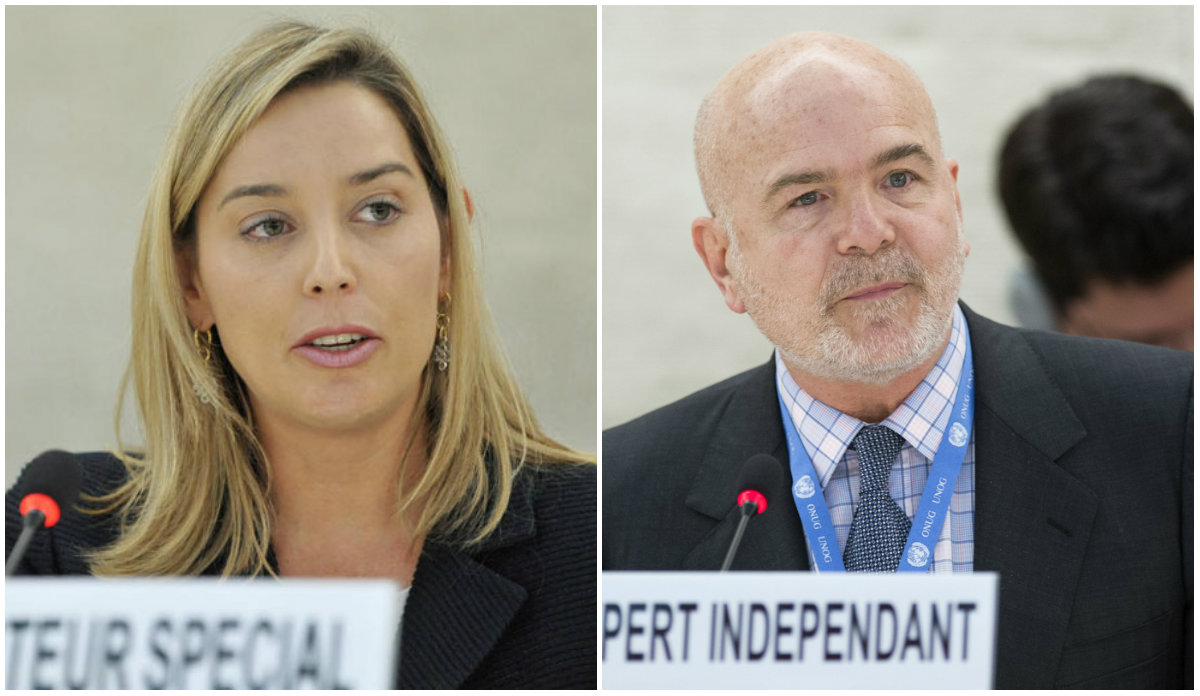The Supreme Court’s ruling which imposes several restrictions on the Maldives human rights watchdog “is an act of reprisal” and contravenes both the Maldives’ Constitution and its international human rights obligations, two UN rights experts have said.
The Supreme Court on Tuesday ruled a report submitted by the Human Rights Commission of the Maldives (HRCM) to the UN in September last year as unlawful.
Judges set an 11-point guideline barring the commission from communicating with foreign bodies without oversight from “relevant state institutions.”
The guideline also orders the HRCM to ensure their activities are conducted with the full cooperation of other state institutions and that they “will not ruin the reputation of the Maldives.”
“The Supreme Court’s decision is purely and simply an act of reprisal against the Human Rights Commission for its legitimate cooperation with the UN human rights systems and its mechanisms,” said the UN special rapporteurs on the independence of judges and lawyers, Gabriela Knaul, and on the situation of human rights defenders, Michel Forst.
Knaul and Forst have urged the Supreme Court to reconsider its verdict.
The Supreme Court had charged the HRCM with treason under controversial suomoto regulations that allow the court to prosecute and pass judgment.
The charges related to an HRCM report to the UN’s Universal Periodic Review, in which the commission said the Supreme Court controlled and influenced the lower courts to the detriment of the Maldives judiciary.
The UPR is a process that involves a review of the human rights records of all UN member states by other states, in order to improve the situation in all countries and address violations.
During a second hearing last year, the HRCM said its observations were based on reports by Knaul, the International Commission of Jurists and advocacy NGO Transparency Maldives.
Judges censured the commission then, saying the judiciary had rejected Knaul’s 2013 report as “invalid.”
Chief Justice Abdulla Saeed on Tuesday said the HRCM report was biased and undermined judicial independence in the Maldives.
Knaul and Forst said the Supreme Court verdict “is an undue interference into the independent work of the commission and their right to share information freely with the UN.”
The verdict is at attempt to strip the HRCM of its independence and “severely limit its constitutional prerogative to promote, as well as monitor and assess observance of, human rights in the country,” they said.
The Supreme Court has contravened the Maldives constitution which enshrines the independence of the Human Rights Commission, they added.
“While the judiciary is to decide matters before it without any restrictions, improper influences, inducements, or threats, it is bound by the powers granted by the Constitution and the laws and must function in full compliance with the state’s international human rights obligations.”
Knaul and Forst said the government has not responded to an October 2014 letter they had written regarding the charges.
“We deeply regret that the government of the Maldives has failed to respond to this letter and urge the government to respond to the questions addressed in a timely manner.”
The main opposition Maldivian Democratic Party, civil society groups and lawyers have also condemned the Supreme Court’s ruling and said the court has infringed on the parliament’s mandate by “writing laws” for the HRCM.
In March last year, the court had sacked the Elections Commission’s president and vice-president when they criticized a 16-point electoral guideline issued by the court after it annulled the first round of presidential elections in September 2013.
In 2012, the Supreme Court ruled that the anti-corruption watchdog was not authorized to suspend government contracts even if they suspected major corruption.
The president of the Anti – Corruption Commission at the time said the ruling rendered the ACC powerless to stop corruption.
